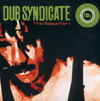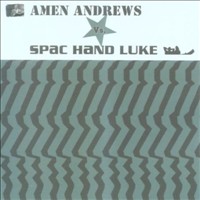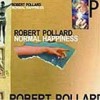- Administrator
- Albums and Singles
 This reissue of an insanely obscure and rare album by Susan Christie is very welcome. While I don’t pretend to have even heard of her before, I’m glad I’ve heard her now. Paint a Lady is a top quality album; it combines all sorts of styles and influences (but mainly folk) to make a nearly perfect pop album.
This reissue of an insanely obscure and rare album by Susan Christie is very welcome. While I don’t pretend to have even heard of her before, I’m glad I’ve heard her now. Paint a Lady is a top quality album; it combines all sorts of styles and influences (but mainly folk) to make a nearly perfect pop album.
Most of the album is excellent with Christie somewhere between a mysterious and sexy Nancy Sinatra character and a more worldly, truthful Janis Joplin. Her backing band is great: they combine elements of folk and country with psychedelica and funk. Christie’s performance on the first half of the album is spotless. Her voice is beautiful and strong, it commands total attention. On the country standard “Ghost Riders in the Sky,” not only does she give a soulful rendition of the song but her voice is doubled up with an echo added to her words. It is a simple but very effective technique which adds an ethereal quality to the song.
Mid-way through the album is “Yesterday, Where’s my Mind?,” which is easily the weak point of the album. More specifically the first chunk of the song is turgid. The backing band are great, slowly building up a powerful groove but Christie’s spoken word vocals are atrocious flower child waffle about going on acid. However, when she starts repeating the phrase “God, where is my mind?” and snarling like a proto-Jarboe the song is saved. It quickly changes style into a country-tinged rock song. The electric guitar buzzes and growls as Christie unleashes her voice properly. As much as I dislike the intro I’m more than happy to sit through it to get to this.
One word of warning about this album: because of the nature of the source recording the sound gets a bit ropey at some points. In 1970, only three copies of the album were pressed and, although not stated in the press release, I’m guessing the master tapes were lost. This reissue was made from one of the three vinyl copies and in a few places the vinyl is worse for wear. Some of the songs have a lot of scratching on them which at times kill the mood. Still, beggars can’t be choosers.
I’m not a rabid rarity collector, I don’t think that a rare psychedelic album from the '70s or a black metal demo limited to five cassettes is any better than something that gets a huge pressing and fan base. However, I do often wonder how many classic albums have been lost to society. A better Velvet Underground could be in a vault somewhere waiting for someone to stumble across or to be accidentally destroyed. Susan Christie may not be up there with VU but making her music available at long last was worthwhile. Paint a Lady isn’t life changing or ahead of its time but it is a cracking album. A lot of albums that should never have been made have been given proper releases so it’s nice to hear some form of musical justice by getting an album like this released. Paint a Lady is something I will be returning to again and again.
samples:
Read More
- Administrator
- Albums and Singles
 Celebrating the 10th anniversary of Lion and Roots, Style Scott's independent imprint, this double disc release spotlights classics from this long-enduring reggae act and rewards dubwise devotees with unreleased goodies and alternate mixes.
Celebrating the 10th anniversary of Lion and Roots, Style Scott's independent imprint, this double disc release spotlights classics from this long-enduring reggae act and rewards dubwise devotees with unreleased goodies and alternate mixes.samples:
Read More
- Administrator
- Albums and Singles
 This overlooked album by Serge Gainsbourg collaborator Jean-Claude Vannier is as close as composing gets to stream of consciousness. Seemingly dipolar pieces of music have been sandwiched together with deft skill and grace to make an album so rich in sound that ears everywhere will feel like they’ve just had their last meal care of a Michelin star restaurant. It’s rare that the kitchen sink approach to writing music works but Vannier pulls it off in style.
This overlooked album by Serge Gainsbourg collaborator Jean-Claude Vannier is as close as composing gets to stream of consciousness. Seemingly dipolar pieces of music have been sandwiched together with deft skill and grace to make an album so rich in sound that ears everywhere will feel like they’ve just had their last meal care of a Michelin star restaurant. It’s rare that the kitchen sink approach to writing music works but Vannier pulls it off in style.
B-Music
Vannier is best known as the man behind the music on Gainsbourg’s classic Histoire de Melody Nelson. That album is rightly regarded as a masterpiece and very little else of what Gainsbourg recorded reached that level of perfection (although his other works are by no means imperfect). As such, I was surprised upon hearing L’Enfant Assassin des Mouches that it was just as good as Histoire…. This Vannier album could very easily have been included with Histoire… as a double album. The only thing missing from L’Enfant Assassin des Mouches is Gainsbourg’s voice; it always feels like the vocals are just about to kick in but they never do. However, the music alone more than stand up to Gainsbourg’s legacy.
A unexpectedly restrained start with what sounds like a field recording in a sleepy French town on “L’Enfant la Mouche et les Allumettes” gives way to a mighty Krautrock groove; so far, so good. The music never stays the same for long; Vannier makes the music of Fantômas sound positively static. It takes a few listens to get into the feeling of the disc as it seems a bit disjointed at first. He blends styles and instrumentation like no one else; funk rhythms sit comfortably with a choir while what sounds like someone jamming on their guitar to King Crimson playing alongside it all. All this can change suddenly to something completely different like pompous French pop, jazz or all out noise (sometimes all at once). The best part is that with repeated listens small patterns and motifs become apparent that were lost in the chaos previously. It is more adventurous than Histoire… as Vannier is free to do what he wants as opposed to create songs.
As the track titles suggest, L’Enfant Assassin des Mouches is a concept album. Each piece depicts a different scene and it seems to me that the different segments of music within the various pieces represent the cast of the story. Gainsbourg’s contribution to this album is a short summary in the sleeve notes of the action as he imagines it. Vannier changes the mood and setting masterfully, the eastern tinged strings and rhythms of “Le Roi des Mouches et la Confiture de Rouse” capture the sights, sounds and smells of a flamboyant regal feast; Vannier makes music for all the senses. Later the action of “Les Garde Volent au Secours du Roi” provides a dramatic, psychedelic contrast to the earlier party atmosphere. The overblown, epic music isn’t the soundtrack I’d imagine for a child killing flies but it certainly works well.
In addition to the album there are also a couple of bonus tracks in the form of two versions of “Je m’appelle Geraldine” which are superfluous but a nice addition nonetheless. Also included is a video of a live performance of the album’s opening piece recorded for a fashion slot for French television. It’s fantastic to see Vannier’s orchestra play this stuff with a model parading down a catwalk in various costumes, it all fits together beautifully.
Albums like L’Enfant Assassin des Mouches just aren’t made anymore. It sounds firmly rooted in its time and place but it has withstood the tests of time remarkably. It is an inspiring listen that gets more interesting each time I hit play, quelle disque!
samples:
- L'Enfant la Mouche et les Allumettes
- Le Roi des Mouches et la Confiture de Rouse
- Je m'appelle Geraldine (Mid-tempo)
Read More
- Administrator
- Albums and Singles
 In the face of diminishing returns from his midtempo/ downtempo releases for Warp, Ninja Tune, and Planet Mu, Luke Vibert's latest for Rephlex showcases his boldest material this century, suggesting that there may yet be some more good ideas up this maturing musician's rumpled sleeve.
In the face of diminishing returns from his midtempo/ downtempo releases for Warp, Ninja Tune, and Planet Mu, Luke Vibert's latest for Rephlex showcases his boldest material this century, suggesting that there may yet be some more good ideas up this maturing musician's rumpled sleeve.
samples:
Read More
 These two albums by Isabelle Antena show how easy it is for an artist to lose everything that makes them interesting. On a Warm Summer Night (Tous mes Caprices) is an artifact from a time best forgotten while L’Alphabet du Plaisir, the 'best of' compilation, also contains a lot of stinkers but also enough good pieces that show that Antena wasn’t always crap.
These two albums by Isabelle Antena show how easy it is for an artist to lose everything that makes them interesting. On a Warm Summer Night (Tous mes Caprices) is an artifact from a time best forgotten while L’Alphabet du Plaisir, the 'best of' compilation, also contains a lot of stinkers but also enough good pieces that show that Antena wasn’t always crap.
- Scott Mckeating
- Albums and Singles
Newcastle-upon-Tyne’s Dressed in Wires (aka Simon Earp) continues his one-man mission to inject digital hardcore with his own special brand of I-don’t-really-get-it humour. This cassette’s title track may begin as a one trick assault on the John Williams theme, but thankfully soon reveals much more going on.
The hacksaw job on the E.T. theme turning it into a grinning digital grind soon leads into a full-blown case of descending pixelated rot. A climbing obstreperous clanker of a beat (something between breakcore and leftover Ikea parts shaken in a jar) hauls up to chest height a dread fuelled face punched electronic piece. Reminiscent of a '80s synth soundtrack, this melodic centrepiece of the 12 minute A side shows Dressed in Wires doesn’t really want to crap on his own dinner plate. Even the expected finale of a disassembled through degradation piece of possible euro-pop doesn’t harm.
The flipside, “Miscarriage, Where Were you”, appears to take another screwdriver to the Spielberg / Williams partnership. A much briefer piece, this stuttering scratchy shambles sees high end feedback carving a melody out of rubbish like Merzbow doing the Close Encounters theme. As ever, Dressed in Wires is thoroughly entertaining.
Read More
- Administrator
- Albums and Singles
 These two albums by Isabelle Antena show how easy it is for an artist to lose everything that makes them interesting. On a Warm Summer Night (Tous mes Caprices) is an artifact from a time best forgotten while L’Alphabet du Plaisir, the 'best of' compilation, also contains a lot of stinkers but also enough good pieces that show that Antena wasn’t always crap.
These two albums by Isabelle Antena show how easy it is for an artist to lose everything that makes them interesting. On a Warm Summer Night (Tous mes Caprices) is an artifact from a time best forgotten while L’Alphabet du Plaisir, the 'best of' compilation, also contains a lot of stinkers but also enough good pieces that show that Antena wasn’t always crap.
LTM
The reissue of On a Warm Summer Night (Tous mes Caprices) is a chore to listen to. All of the music sounds like it was programmed by someone who hates music. It is a blend of easy listening jazz and Latin rhythms, now sounds extremely dated. I can just imagine a bunch of yuppies from a Bret Easton Ellis novel sitting in an expensive French restaurant with this drivel playing in the background. Horrible bongos and cheesy bass lines mix with hideous guitars like vomit in a cesspool. It sounds disgusting and forced. There’s absolutely no emotion anywhere on the album. Antena herself sounds cold, more like a session singer who doesn’t like what she’s singing but doing it because the money’s good. “Eclat de Nuit” is a slow number that is meant to sound slinky and sexy but Antena ends up dead and asexual. Before the album hits the halfway mark I’m feeling like death would be a sweet release. Killing myself to escape from listening to this album wouldn’t be suicide, it would be euthanasia.
However it keeps going and I keep listening. I find out later in the disc that Antena isn’t happy making bland music of her own, she has to bland up other artists’ music too. Included on this disc is her reworking of Frank Zappa’s “Village of the Sun.” It sounds dreadful. I’m not a fan of Zappa to begin with but no one deserves this sort of treatment. Antena sounds even more bored singing this than she does with her own songs. As if it wasn’t enough of a treat to have all this music reissued, there are bonus live tracks. A number of tracks from On a Warm Summer Night appear again, along with a couple of other songs. From the sounds of things, Antena is even less exciting live as she is in the studio. She sounds flat and dreary on all of the songs. Every time she tries to sound passionate she sounds even more dismal.
Obviously there is a huge jazz influence on her writing but jazz is supposed to be full of fire and passion. Even listening to a great jazz musician playing standards is heaven. However, Antena is jazz purgatory. Her music is jazz reduced to something that is more suited to being background music in a department store than something people should be expected to pay money for. I get a mental image of her band and it’s a bunch of session musicians with big, waxy grins and permed hair in obnoxious shirts. Someone should have drowned them at birth.
samples:

As the album progresses it is possible to hear Antena’s descent into mediocrity. For the mid- '80s material I can see some merit to them. “Be-Pop” sounds horribly old-fashioned to my young ears but it’s not all bad. “Le Poisson des Mers du Sud” is as much influenced by the Mediterranean as it is by French pop. It wouldn’t be the sort of music I’d normally like but it is one of the more enjoyable parts of the album. However, she then starts pandering to the safer side of the jazz market. Any of the sensuality present in the songs from her early recording career disappears. All that’s left is a collection of hollow tunes, more suited to being played in a lift than on a stereo.
One of the biggest crimes on L’Alphabet du Plaisir is her murder of Serge Gainsbourg (well not literally but I wouldn’t put it past her). Her version of “Ce Mortel Ennui” is appalling, never have I heard such a dreary rendition of Gainsbourg’s work. Worse again, she embraces the songwriting “talent” of Barry Manilow. This is perversion at its most base level and I can be no part of it. Anyone who sinks to covering Barry Manilow needs to banned from entering a recording studio for the rest of their lives, no exceptions.
This is music for people in their middle ages (or possibly in their dark ages) who think they’re cosmopolitan by listening to French pop. They’re the same people I imagine who buy those compilations of contemporary songs being played on pan pipe advertised on TV in the middle of the night. The vast majority of the songs sound contrived and Antena sounds like she would rather be somewhere else. I know I’d rather be somewhere else. In saying that, at least the best of has pointed me to her early work which I intend to investigate further. The rest of her work can gather dust as far as I’m concerned.
samples:
Read More
- Administrator
- Albums and Singles
date - Nov 14th
artist - MAJU
title - Maju-4
cat # - XCD-055
format - CD
label - EXTREME
country - Australia
Maju-4 embodies a deep organic interaction that is almost retro-ambient in its approach, carving out a psychotropic quasi-analogue adventure that engages the subconscious and unconscious with compelling clarity. Maju-4 is now, more than ever, Sakana and Narita. Their distinct voice as Maju has now matured into a force that few can follow. They have allowed the ghost in the machine to speak and its voice is powerful and pure. Maju-4 doesn’t provide any excuses, instead it launches into the deep cocoon like sound that they have only toyed with on previous releases. This is a celebration of a united musical vision that does not need to or want to compromise. Hosomi Sakana, having left the stardom of Elephant Kashimashi, has quite rightly never been prepared to compromise. Elephant Kashimashi was a band that achieved legendary status by becoming successful for making music they believed in and, by its own accord, allowing it to connect with the hearts of Japanese people of all ages. This was no small effort, in light of the flood of J-Pop and saccharine music that pervades the Japanese music industry. He currently works with Akino Arai, famous for singing theme songs for major anime productions such as Outlaw Star, Noir, Macross Plus and Dragon Quest. Masaki Narita is also behind the workings of many Japanese musicians with his production and musical talents. To have two such talented and visionary musicians creating music together is a blessing and a joy to behold. Maju-4 is like a stream of consciousness and it never asks for approval or offers excuses. If Carl Jung had made music, it would have sounded like Maju.
Read More
- Administrator
- Albums and Singles
date - Nov 14th
artist - Mr Geoffrey & JD Franzke
title - Get a Room
cat # - XLTD-006
format - CD
label - EXTREME
country - Australia
Get a Room, the audacious and engaging ‘mixscape’ of found sounds and music through the ages by Australian artists MR GEOFFREY & JD FRANZKE. Their backgrounds, DJ and sound designer respectively, make for a wonderful combination that can only be labeled a ‘Mixscape’. “Get a Room” is the perfect album for twenty-four hour rotation or driving through the night.
EXTREME www.xtr.com
Mr Geoffrey and JD Franzke's set, “Get a Room”, takes us so far past dance that the beats are like background radiation, like a spooky or wistful afterglow. They go so deep, so low, that it's close to absolute zero; a chilled zone where even the slightest tremor feels warm enough to melt the vinyl. Down tempo at this degree seems eccentrically cool, drenching its melancholy laid back haze in post-coital blow. Old school lounge ghosts get blissed on streetscapes made out of ambient, concrete sounds collected from Nepal, Thailand and India (as well as from the sidewalks of late night Melbourne). Tango breaks and sleek sci-fi themes intermingle under the hypnotic coaxing of a seventies self-help guru. These encounters aren't as unlikely as they might sound on a track list. But how can you tag the fluency of this type of mix? Mr Geoffrey calls the blend "urban pastoral". Cruising a fantasyland of nightclubs, overhearing the action inside. This is more like an expansive atmosphere than a scene. You're moving through a flow rather than a beat. Let's also call it "drift" - maybe even as a new style - open to anything that keeps it shifting like a tide from twilight to dawn. (EDWARD COLLESS)
Read More
- Administrator
- Albums and Singles
date - January 16th 2007
artist - Claudio Parodi
title - Horizontal Mover (homage to Alvin Lucier)
cat # - XCD-056
format - CD
label - EXTREME
country - Australia
Few musicians have the opportunity to pay homage to their musical idol, much less send them a recording and receive a reply. CLAUDIO PARODI did just this, sending “Horizontal Mover” to Alvin Lucier. The response was nothing short of overwhelming – “I find it absolutely beautiful”.
This shows the humility of Lucier, a pioneering artist, and the talent of PARODI in producing “Horizontal Mover”, a work that deserves such praise.
EXTREME www.xtr.com
The words of Lucier are worth repeating in full: “Dear Claudio, I just received the CD of Horizontal Mover. I will have to re-read your description of the process to more fully understand it. But I can say that after listening to it, I find it absolutely beautiful. I am honored to be so honored. The CD will take a foremost place in my archives. Thank you so much. Cordially, Alvin Lucier.”
PARODI followed his own interpretation of the classic “I am sitting in a Room” using cymbals, drums and toms to invent his own vision of diffusion, resonance and the recording process. Such a process treads a tightrope between concept and music.
Fortunately PARODI’s sensibilities are firmly planted in bringing forth music that is both satisfying and challenging to the listener. The sounds keep building on themselves, layer upon layer, to create an intriguing textural music that rewards repeated listening.
“Horizontal Mover” (homage to Alvin Lucier) is the first of seven generative compositions that PARODI is recording for Extreme. Other musical luminaries to be showcased in the series include Charles Hayward, Yasunao Tone (of Fluxus) and Alvin Curran.
Read More
- Administrator
- Albums and Singles
 Robert Pollard’s second solo album of 2006 is a mixed bag of pop gems and forgettable tunes that betray an inconsistency of effort. While it’s the sort of thing I expect from one of his numerous side projects, that one of his so-called major releases is so scattershot can only be considered a disappointment.
Robert Pollard’s second solo album of 2006 is a mixed bag of pop gems and forgettable tunes that betray an inconsistency of effort. While it’s the sort of thing I expect from one of his numerous side projects, that one of his so-called major releases is so scattershot can only be considered a disappointment.
As a longtime fan, I’ve given Pollard some leeway on occasion because his missteps have been relatively minor in light of how much I’ve enjoyed the majority of his output. So it’s with trepidation that I admit that the bad outweighs the good on one of his major releases. Like on From a Compound Eye, this album finds Pollard laying down the basic vocal and guitar tracks and leaving the rest to Todd Tobias, who plays almost all of the other instruments. For all of the work he does, it seems unfair that Tobias doesn’t share billing. Yet his backing on this particular album is merely competent if uninspired, adjectives that could sometimes describe his production work as well. Fiction Man, for instance, was fairly flat, if not bland, yet Compound Eye was among his best. With Normal Happiness, Tobias unfortunately returns to the Fiction Man aesthetic. There’s a sameness at work here that deprives many songs of the dynamics they deserve, especially "Top of My Game," "Tomorrow Will Not Be Another Day," and "Join the Eagles." While it might seem natural to blame Tobias for these flaws, his production isn’t the biggest problem here.
The worst part is Pollard’s singing, something that I’ve never had reason to worry about before. At times, it seems that he’s going with the first take regardless of its quality and moving on as fast as he can. In particular, "Seriously Bird Woman (You Turn Me On)" is intended to be a smoldering ballad but devolves into a painful dirge when Pollard’s voice cracks in an attempt to hit high notes that are out of his reach. Another take might have done wonders, but perhaps Pollard couldn’t be bothered. This philosophy rules much of the album, particularly the second half.
As much as I find worthy of complaint, there are still some great songs here. "Whispering Whip" is a strange, brief twist of pop, while "Supernatural Car Lover" is a fairly straightforward sunny song with a great hook. "Give Up the Grape" and "Pegasus Glue Factory" are heavier than the rest and might have been better situated on one of the Circus Devils releases, but the latter in particular is a nice change of pace and something I’d like to hear more of in the future. In an interview not too long ago, Pollard said he’d like to do a post-punk album but that he’s too old to make it believable. It’s a shame he feels so uncharacteristically self-conscious because, similar to "Pegasus," "Sleepover Jack" from Half Smiles of the Decomposed was one of that album’s highlights, and I would love for him write more songs in this vein.
I prefer Pollard when he’s incensed, when he feels like he has something to prove. Even From a Compound Eye had that element to it, but this one simply does not. Writing consistently enjoyable songs comes easily to Pollard, but this album sounds like it’s coming too easily.
samples:
 
Read More

